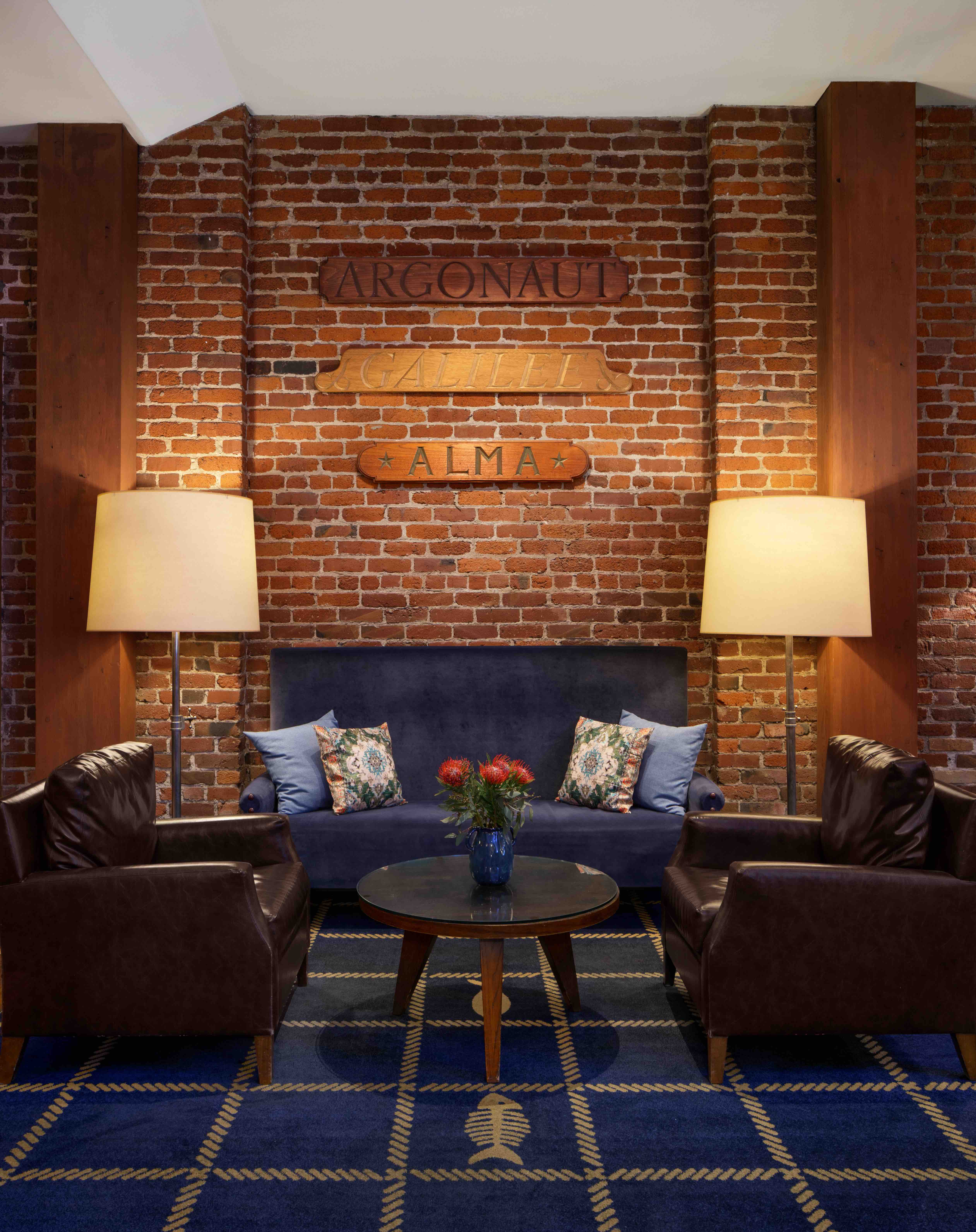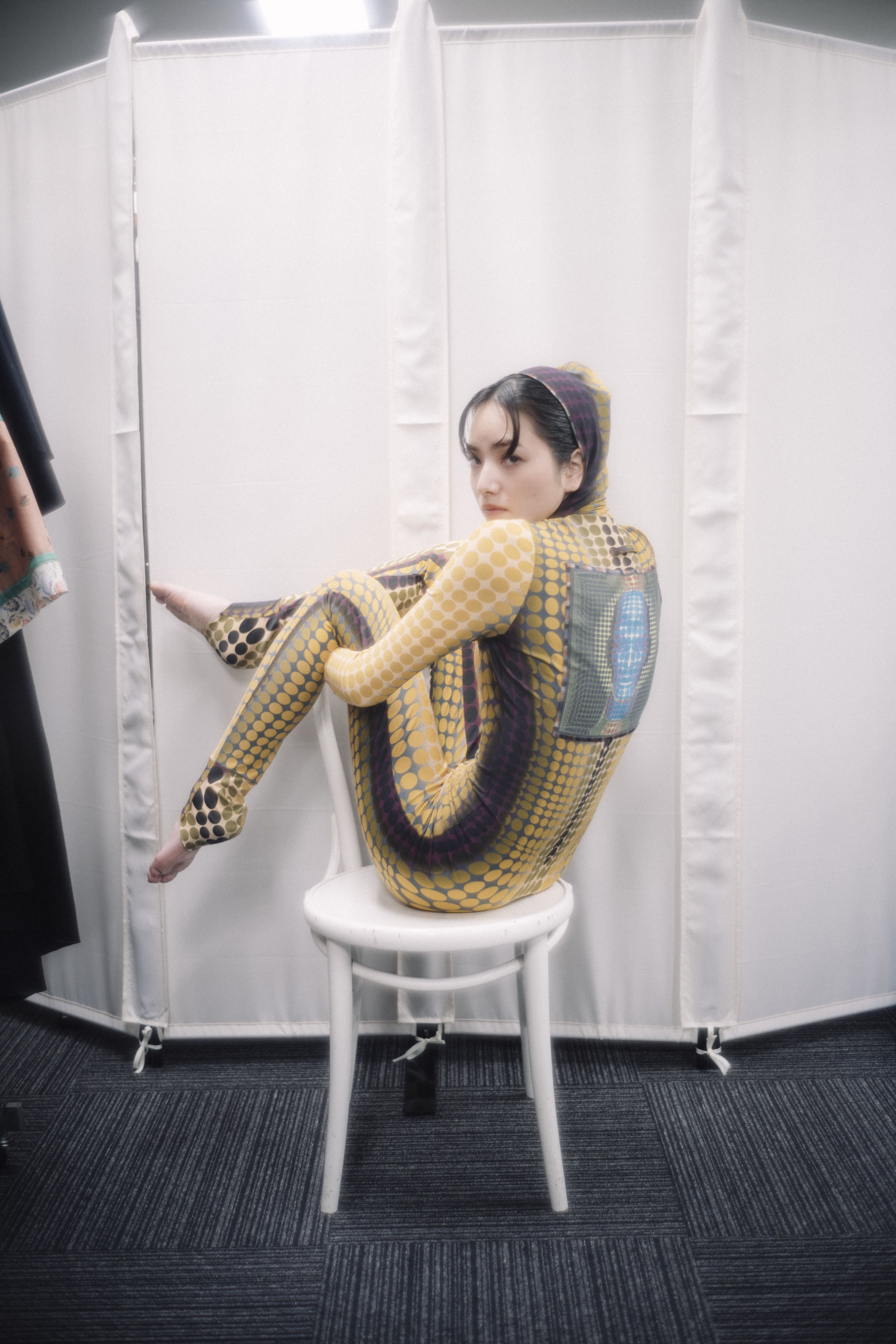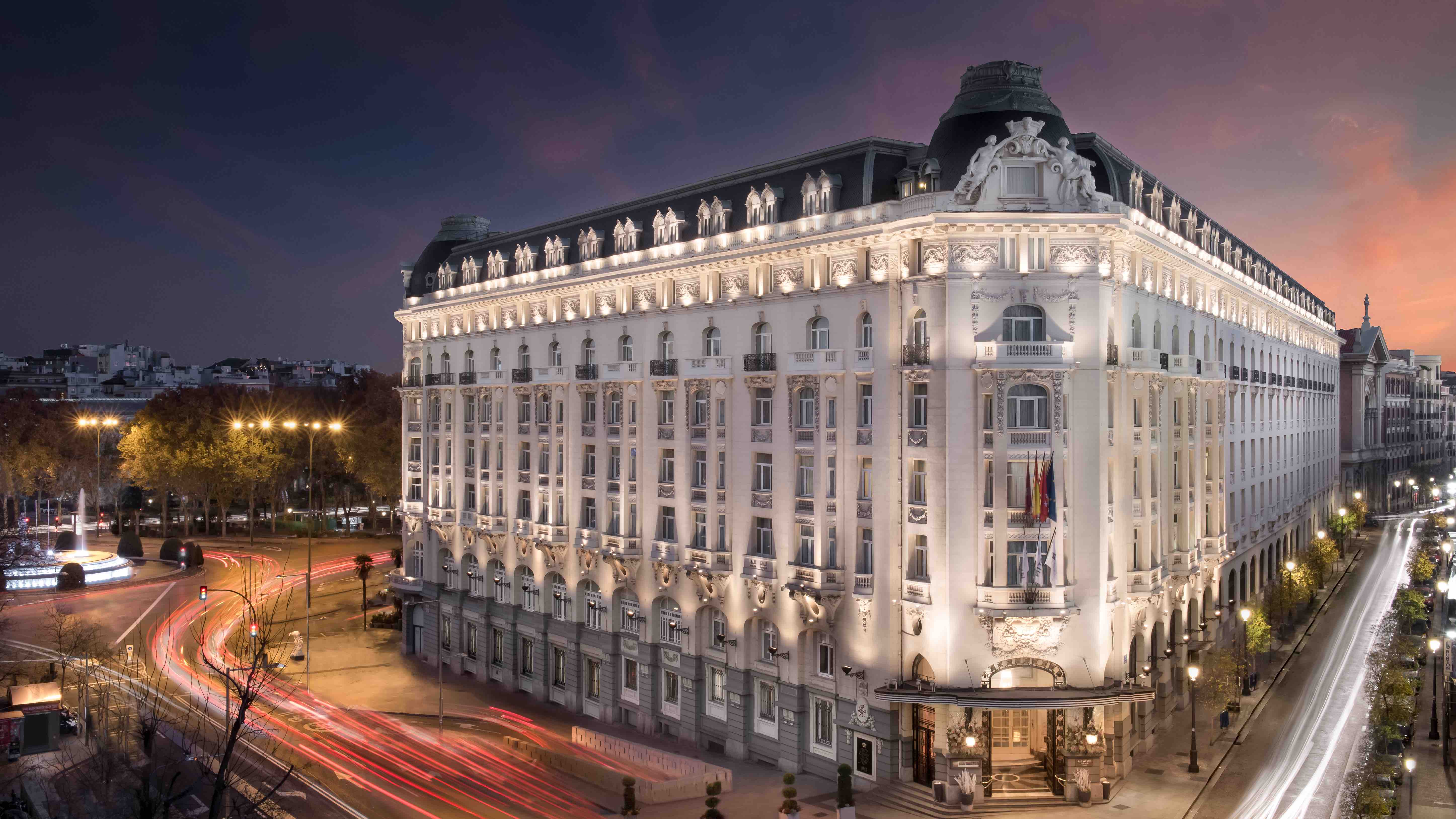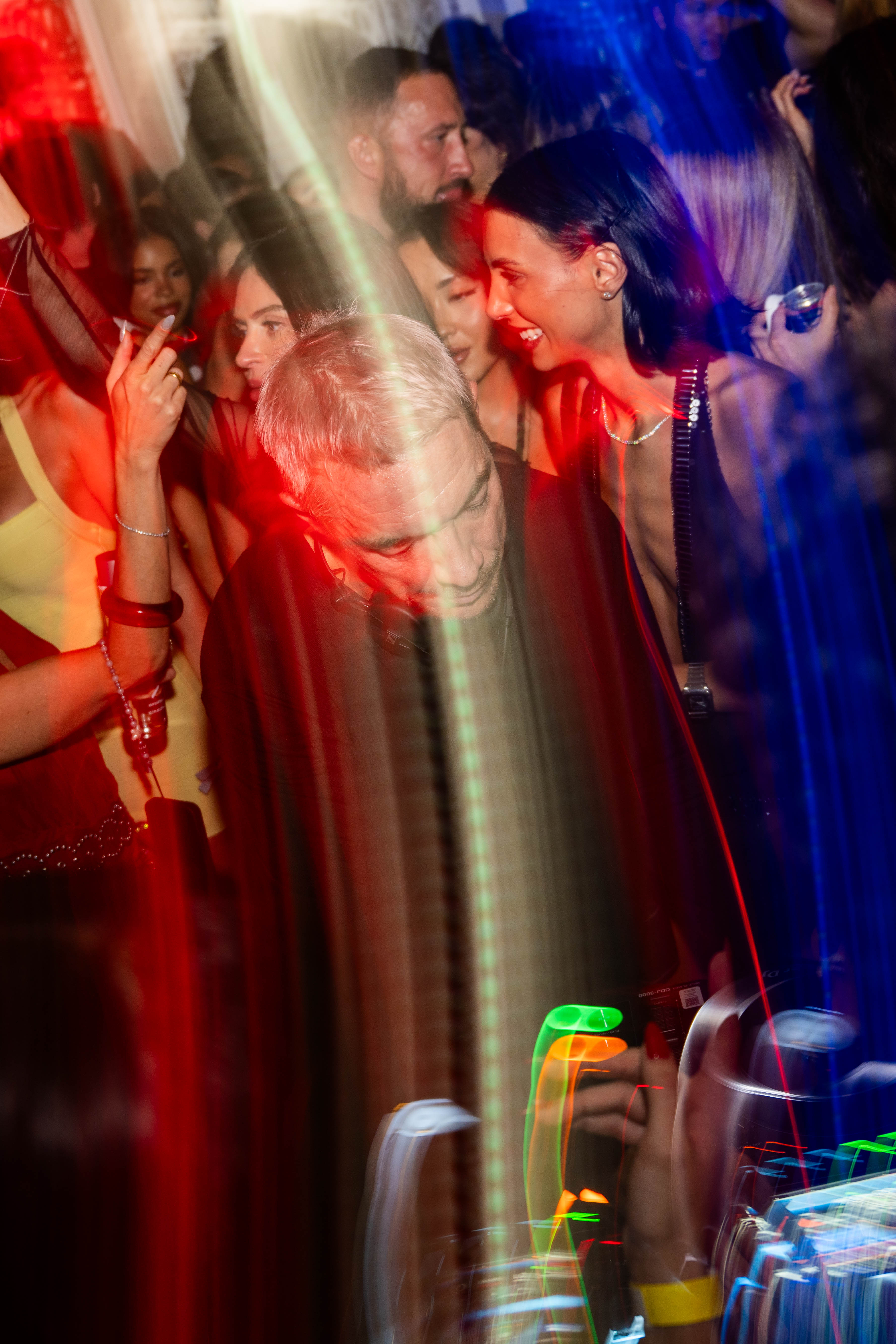

Illustrated by [Madeline McMahon](https://www.madelinemcmahon.com/)
I remember stepping out from my small studio apartment
in Brighton Beach, Brooklyn on November the tenth, 2016. As I climbed down from the fourth floor, the presence of Georgian, Ukrainian, and Russian chatter which usually permeated the air—along with their billowing smoke—in the tightly wound stairwell of my brownstone apartment was eerily absent. It was the morning after Donald Trump’s election, and I figured that, because I lived in one of the few sectors of the borough which overwhelmingly voted in his favor, they must have regressed inside for the day, glued to the screens flashing simultaneous disbelief and ecstasy at the proclamation of his victory. I made my way up to 14th Street and Union Square, stopping briefly
as I always had, to admire the color and craftsmanship of the Matryoshka dolls that sat in the window of a shop near my home.
The colors, a careful mix of deep reds and scarlets enveloped
by thick golden yellows and accents of halcyon green, always reminded me of the Carnaval in Barranquilla, Colombia. The celebration of hues comforted me. I was entering my fifth year living in New York, teaching Spanish, Latin American Literature, and History for a CUNY school nearby. The recent news had undeniably infiltrated every aspect of my classrooms, oftentimes in a divisive manner. Many of my students felt a similar pull towards the headlines as aspects of their own heritage and Latinidad began to inform an overarching narrative stemming from the devastating election.
Growing up in the Eighties off the Caribbean coast of Colombia, in a small town called El Carmen de Bolívar, violence was an everyday reality. At any moment, one could find oneself between the crossfire of guerrillas, paramilitaries, drug traffickers or the army. Bullets were indiscriminate for anyone unlucky enough to be caught between their lethal movements. As a queer kid often ostracized from the machista world that surrounded me, I found safety in reading. Otherness was an ever present theme in the stories I so intensely devoured. Most often, the novels were charged with adventure, where a heroic figure with a divine and righteous duty towards good, fought against some abstract, exterior threat. I soon found myself to be in this position of otherness. Many of my Latinx immigrant students, too, began seeing themselves as that black cloud, that otherness, slowly encroaching upon a threatened conservative America.
The sensationalist American news media created this situation, giving voice to the most reactionary ideas. Collective hysteria tends to be channeled through aggressions against the scapegoat. Other members of society look to cleanse their sins by blaming that black sheep, whose expulsion from the community promises the return of harmony or return to order and progress, for the alleged havoc they wreak. Thus, in the midst of crisis, the choice to scapegoat is fundamental for the social order. I witnessed this process, firsthand, while working with union workers in Colombia, a country where social organizers are often targeted as the black sheep through similar, reactionary media channels. However, within the United States, it quickly became evident to me that this black sheep manifests not only as reactionary propaganda towards leftist and progressive movements, but also along deeply racial lines. It became increasingly difficult for my students and myself not to see our own personal stake within the issue. Already minorities, we now occupied the space of some greater otherness which many heralded as the end of the American economy and way of life.
The week before, I had made a date to visit a dear friend
and writer of mine, a fellow Colombian-born queer author and intellectual who had, in some sense, taken me under his wing as I worked to learn English and navigate the U.S. I knew full well that the entirety of our interaction would likely be dominated
by the news of the previous night. Simultaneously, constant vibrations of _Grindr_ notifications competed for my immediate attention. Obediently, the familiar chime of the sex app notification had my hand reaching for my pocket. A message sent by a headless porcelain white torso proclaimed:
“Hey papi, Trump may be a winner today, but you can be a winner too if you fuck this ass.”
This sat directly below a _New York Times_ headline:
“Donald Trump Is Elected President in Stunning Repudiation of the Establishment”
_Mierda, estos gringos no pierden tiempo._
I quickly re-pocketed my phone and continued on my way towards the subway. The winter in Little Odessa always brought with it a feeling of serenity and quiet. Low temperatures and strong breezes, the sound of the sea nearby were the only organic sounds penetrating my awareness. Yet something about the cold seemed cutting and sinister. As I clambered on to the Q train,
the sharp edge of this alien serenity melted into anxiety as I approached Manhattan. Even my usual companion, a scrappy man who always seemed to be cutting his nails while eating chicken and calmly humming “Closer” by The Chainsmokers, was void of both chicken and song, choosing to stand, gripping the pole at the center of the train rather than sitting by me.
I couldn’t shake off the quiet anxiety that had seeped into my skin as I walked up to my friend’s rather glamorous East Village apartment. Entering his abode is something akin to walking in
to the tumultuous right-side of a kitsch tropical hurricane. A hysterical man by nature, his green parakeet chatters almost as much as himself. I notice his glowing and archaic desktop has three separate tabs open: CNN, BBC, and Rentboy.com. Upon seeing me, he greeted me in his patent hyperspeed Caribbean Spanish:
“_Marica_, I’m going to leave this country, and you better start looking for a way to get that citizenship now, or else they’re going to be throwing you over that wall themselves. In this country you’re either the _pobrecito_ or the _amenaza_.”
Nothing short of melodramatic, his hands flailed as his rotund body gyrated in a constant state of erratic dance. When my phone buzzed again, the impulse to grab it overcame me, and as I pulled it from my pocket, he swiftly smacked the device down on to his guayacan table. “No more of that,” he said, before advising me that if I was to survive the next four years, I would have to distance myself from reading or watching the news.
Barreling back towards Brooklyn on the Q, I couldn’t heed his warning. Like the fatal allure of the cigarette, phantom vibrations and pure impulse compelled me to reach for my phone before any new headline had broken, the deeply addictive burst of serotonin only accessible through quick bite-size bits of news declaring each sharp turn towards the future. Something of a nihilist myself, entropy seemed now not only likely but in process. I feared that new anti-immigrant laws could break the life I had built in New York. I had a steady job teaching. I was able to invest myself in exploring parts of my queer identity I had always felt necessary to hide while living
in Colombia. I was encountering, for the first time, what it means to be Latinx in a context where, for the first time in my life, I was the minority. I had a Green Card which guaranteed my residence for the next 10 years with the capability of renewing it regularly. I looked out at the faces around me on the train, wondering if they saw me as the brown threat this new president claimed would be the end of their livelihoods and the death of their children via drugs. As I stepped off the train, I made a promise to myself to focus my energy and free time on the goal of acquiring the status of an American citizen.
I saw others around me follow suit, as peers, who had simply come here for the opportunity to pursue higher education or
to support family facing economic and political violence back home, now saw a demand to declare themselves as citizens
and patriots—certainly not “bad hombres.” Some immigrants
I knew even became avid Trump supporters themselves as they feared discrimination by a resurgent threat of white nationalism, choosing to nominally declare their political allegiance in exchange for some sense of security.
Some of the students in my classes, also members of the very minority groups Trump adamantly spoke out against, declared their support for his presidency and their intention
to vote in his favor. I remember in particular two students
of mine, one Latinx and the other a young Muslim girl, both adamantly declaring their support for Trump. It was difficult for me to rationalize this within my own thinking. I could
only surmise that they might have hoped to prove themselves separate from the narrative the news media had constructed around their identities. _Más papistas que el Papa_, some of them would become more virulent then the anchors on Fox News, driven by the violent, sensationalized, anti-immigrant rhetoric that would come to permeate every artifice of the 24-hour news cycle. Safety meant separating themselves absolutely from the imagined threat of the illegal alien. I always had the impression that laws in the United States were made by powerful institutions which did not allow unexpected changes or setbacks.
One year after the election, I finally received citizenship from a court in Brooklyn. The paranoia, however, remains even after this monumental benchmark. Recently, I read in the press that a new law mandated the US Citizenship and Immigration Service to identify and denaturalize people who allegedly lied in the process of acquiring citizenship.
This new norm has not only generated the notion that I belong to a category of second-class citizens compared to the first class composed of citizens born in this country, but also makes me feel as though I am a suspicious agent at risk of losing rights in an untimely and unjust manner. Much of what the news has predicted has come to pass, countless articles report the ending of the DACA program, the separation of families at the border, and death of children in U.S. custody.
Under these circumstances, the citizenship that people like me possess, could be understood as a conditional citizenship, which, by not guaranteeing my safety as a citizen, forces me
to limit my political participation in public life. This leads
me to think that norms like this are not so much intended to denaturalize people who have acquired their citizenship rights, but rather fill them with fear to immobilize them politically. For now, I remain waiting, refreshing my news feed, and hoping.
 
Illustrated by [Madeline McMahon](https://www.madelinemcmahon.com/)
I remember stepping out from my small studio apartment
in Brighton Beach, Brooklyn on November the tenth, 2016. As I climbed down from the fourth floor, the presence of Georgian, Ukrainian, and Russian chatter which usually permeated the air—along with their billowing smoke—in the tightly wound stairwell of my brownstone apartment was eerily absent. It was the morning after Donald Trump’s election, and I figured that, because I lived in one of the few sectors of the borough which overwhelmingly voted in his favor, they must have regressed inside for the day, glued to the screens flashing simultaneous disbelief and ecstasy at the proclamation of his victory. I made my way up to 14th Street and Union Square, stopping briefly
as I always had, to admire the color and craftsmanship of the Matryoshka dolls that sat in the window of a shop near my home.
The colors, a careful mix of deep reds and scarlets enveloped
by thick golden yellows and accents of halcyon green, always reminded me of the Carnaval in Barranquilla, Colombia. The celebration of hues comforted me. I was entering my fifth year living in New York, teaching Spanish, Latin American Literature, and History for a CUNY school nearby. The recent news had undeniably infiltrated every aspect of my classrooms, oftentimes in a divisive manner. Many of my students felt a similar pull towards the headlines as aspects of their own heritage and Latinidad began to inform an overarching narrative stemming from the devastating election.
Growing up in the Eighties off the Caribbean coast of Colombia, in a small town called El Carmen de Bolívar, violence was an everyday reality. At any moment, one could find oneself between the crossfire of guerrillas, paramilitaries, drug traffickers or the army. Bullets were indiscriminate for anyone unlucky enough to be caught between their lethal movements. As a queer kid often ostracized from the machista world that surrounded me, I found safety in reading. Otherness was an ever present theme in the stories I so intensely devoured. Most often, the novels were charged with adventure, where a heroic figure with a divine and righteous duty towards good, fought against some abstract, exterior threat. I soon found myself to be in this position of otherness. Many of my Latinx immigrant students, too, began seeing themselves as that black cloud, that otherness, slowly encroaching upon a threatened conservative America.
The sensationalist American news media created this situation, giving voice to the most reactionary ideas. Collective hysteria tends to be channeled through aggressions against the scapegoat. Other members of society look to cleanse their sins by blaming that black sheep, whose expulsion from the community promises the return of harmony or return to order and progress, for the alleged havoc they wreak. Thus, in the midst of crisis, the choice to scapegoat is fundamental for the social order. I witnessed this process, firsthand, while working with union workers in Colombia, a country where social organizers are often targeted as the black sheep through similar, reactionary media channels. However, within the United States, it quickly became evident to me that this black sheep manifests not only as reactionary propaganda towards leftist and progressive movements, but also along deeply racial lines. It became increasingly difficult for my students and myself not to see our own personal stake within the issue. Already minorities, we now occupied the space of some greater otherness which many heralded as the end of the American economy and way of life.
The week before, I had made a date to visit a dear friend
and writer of mine, a fellow Colombian-born queer author and intellectual who had, in some sense, taken me under his wing as I worked to learn English and navigate the U.S. I knew full well that the entirety of our interaction would likely be dominated
by the news of the previous night. Simultaneously, constant vibrations of _Grindr_ notifications competed for my immediate attention. Obediently, the familiar chime of the sex app notification had my hand reaching for my pocket. A message sent by a headless porcelain white torso proclaimed:
“Hey papi, Trump may be a winner today, but you can be a winner too if you fuck this ass.”
This sat directly below a _New York Times_ headline:
“Donald Trump Is Elected President in Stunning Repudiation of the Establishment”
_Mierda, estos gringos no pierden tiempo._
I quickly re-pocketed my phone and continued on my way towards the subway. The winter in Little Odessa always brought with it a feeling of serenity and quiet. Low temperatures and strong breezes, the sound of the sea nearby were the only organic sounds penetrating my awareness. Yet something about the cold seemed cutting and sinister. As I clambered on to the Q train,
the sharp edge of this alien serenity melted into anxiety as I approached Manhattan. Even my usual companion, a scrappy man who always seemed to be cutting his nails while eating chicken and calmly humming “Closer” by The Chainsmokers, was void of both chicken and song, choosing to stand, gripping the pole at the center of the train rather than sitting by me.
I couldn’t shake off the quiet anxiety that had seeped into my skin as I walked up to my friend’s rather glamorous East Village apartment. Entering his abode is something akin to walking in
to the tumultuous right-side of a kitsch tropical hurricane. A hysterical man by nature, his green parakeet chatters almost as much as himself. I notice his glowing and archaic desktop has three separate tabs open: CNN, BBC, and Rentboy.com. Upon seeing me, he greeted me in his patent hyperspeed Caribbean Spanish:
“_Marica_, I’m going to leave this country, and you better start looking for a way to get that citizenship now, or else they’re going to be throwing you over that wall themselves. In this country you’re either the _pobrecito_ or the _amenaza_.”
Nothing short of melodramatic, his hands flailed as his rotund body gyrated in a constant state of erratic dance. When my phone buzzed again, the impulse to grab it overcame me, and as I pulled it from my pocket, he swiftly smacked the device down on to his guayacan table. “No more of that,” he said, before advising me that if I was to survive the next four years, I would have to distance myself from reading or watching the news.
Barreling back towards Brooklyn on the Q, I couldn’t heed his warning. Like the fatal allure of the cigarette, phantom vibrations and pure impulse compelled me to reach for my phone before any new headline had broken, the deeply addictive burst of serotonin only accessible through quick bite-size bits of news declaring each sharp turn towards the future. Something of a nihilist myself, entropy seemed now not only likely but in process. I feared that new anti-immigrant laws could break the life I had built in New York. I had a steady job teaching. I was able to invest myself in exploring parts of my queer identity I had always felt necessary to hide while living
in Colombia. I was encountering, for the first time, what it means to be Latinx in a context where, for the first time in my life, I was the minority. I had a Green Card which guaranteed my residence for the next 10 years with the capability of renewing it regularly. I looked out at the faces around me on the train, wondering if they saw me as the brown threat this new president claimed would be the end of their livelihoods and the death of their children via drugs. As I stepped off the train, I made a promise to myself to focus my energy and free time on the goal of acquiring the status of an American citizen.
I saw others around me follow suit, as peers, who had simply come here for the opportunity to pursue higher education or
to support family facing economic and political violence back home, now saw a demand to declare themselves as citizens
and patriots—certainly not “bad hombres.” Some immigrants
I knew even became avid Trump supporters themselves as they feared discrimination by a resurgent threat of white nationalism, choosing to nominally declare their political allegiance in exchange for some sense of security.
Some of the students in my classes, also members of the very minority groups Trump adamantly spoke out against, declared their support for his presidency and their intention
to vote in his favor. I remember in particular two students
of mine, one Latinx and the other a young Muslim girl, both adamantly declaring their support for Trump. It was difficult for me to rationalize this within my own thinking. I could
only surmise that they might have hoped to prove themselves separate from the narrative the news media had constructed around their identities. _Más papistas que el Papa_, some of them would become more virulent then the anchors on Fox News, driven by the violent, sensationalized, anti-immigrant rhetoric that would come to permeate every artifice of the 24-hour news cycle. Safety meant separating themselves absolutely from the imagined threat of the illegal alien. I always had the impression that laws in the United States were made by powerful institutions which did not allow unexpected changes or setbacks.
One year after the election, I finally received citizenship from a court in Brooklyn. The paranoia, however, remains even after this monumental benchmark. Recently, I read in the press that a new law mandated the US Citizenship and Immigration Service to identify and denaturalize people who allegedly lied in the process of acquiring citizenship.
This new norm has not only generated the notion that I belong to a category of second-class citizens compared to the first class composed of citizens born in this country, but also makes me feel as though I am a suspicious agent at risk of losing rights in an untimely and unjust manner. Much of what the news has predicted has come to pass, countless articles report the ending of the DACA program, the separation of families at the border, and death of children in U.S. custody.
Under these circumstances, the citizenship that people like me possess, could be understood as a conditional citizenship, which, by not guaranteeing my safety as a citizen, forces me
to limit my political participation in public life. This leads
me to think that norms like this are not so much intended to denaturalize people who have acquired their citizenship rights, but rather fill them with fear to immobilize them politically. For now, I remain waiting, refreshing my news feed, and hoping.

Illustrated by [Madeline McMahon](https://www.madelinemcmahon.com/)
I remember stepping out from my small studio apartment
in Brighton Beach, Brooklyn on November the tenth, 2016. As I climbed down from the fourth floor, the presence of Georgian, Ukrainian, and Russian chatter which usually permeated the air—along with their billowing smoke—in the tightly wound stairwell of my brownstone apartment was eerily absent. It was the morning after Donald Trump’s election, and I figured that, because I lived in one of the few sectors of the borough which overwhelmingly voted in his favor, they must have regressed inside for the day, glued to the screens flashing simultaneous disbelief and ecstasy at the proclamation of his victory. I made my way up to 14th Street and Union Square, stopping briefly
as I always had, to admire the color and craftsmanship of the Matryoshka dolls that sat in the window of a shop near my home.
The colors, a careful mix of deep reds and scarlets enveloped
by thick golden yellows and accents of halcyon green, always reminded me of the Carnaval in Barranquilla, Colombia. The celebration of hues comforted me. I was entering my fifth year living in New York, teaching Spanish, Latin American Literature, and History for a CUNY school nearby. The recent news had undeniably infiltrated every aspect of my classrooms, oftentimes in a divisive manner. Many of my students felt a similar pull towards the headlines as aspects of their own heritage and Latinidad began to inform an overarching narrative stemming from the devastating election.
Growing up in the Eighties off the Caribbean coast of Colombia, in a small town called El Carmen de Bolívar, violence was an everyday reality. At any moment, one could find oneself between the crossfire of guerrillas, paramilitaries, drug traffickers or the army. Bullets were indiscriminate for anyone unlucky enough to be caught between their lethal movements. As a queer kid often ostracized from the machista world that surrounded me, I found safety in reading. Otherness was an ever present theme in the stories I so intensely devoured. Most often, the novels were charged with adventure, where a heroic figure with a divine and righteous duty towards good, fought against some abstract, exterior threat. I soon found myself to be in this position of otherness. Many of my Latinx immigrant students, too, began seeing themselves as that black cloud, that otherness, slowly encroaching upon a threatened conservative America.
The sensationalist American news media created this situation, giving voice to the most reactionary ideas. Collective hysteria tends to be channeled through aggressions against the scapegoat. Other members of society look to cleanse their sins by blaming that black sheep, whose expulsion from the community promises the return of harmony or return to order and progress, for the alleged havoc they wreak. Thus, in the midst of crisis, the choice to scapegoat is fundamental for the social order. I witnessed this process, firsthand, while working with union workers in Colombia, a country where social organizers are often targeted as the black sheep through similar, reactionary media channels. However, within the United States, it quickly became evident to me that this black sheep manifests not only as reactionary propaganda towards leftist and progressive movements, but also along deeply racial lines. It became increasingly difficult for my students and myself not to see our own personal stake within the issue. Already minorities, we now occupied the space of some greater otherness which many heralded as the end of the American economy and way of life.
The week before, I had made a date to visit a dear friend
and writer of mine, a fellow Colombian-born queer author and intellectual who had, in some sense, taken me under his wing as I worked to learn English and navigate the U.S. I knew full well that the entirety of our interaction would likely be dominated
by the news of the previous night. Simultaneously, constant vibrations of _Grindr_ notifications competed for my immediate attention. Obediently, the familiar chime of the sex app notification had my hand reaching for my pocket. A message sent by a headless porcelain white torso proclaimed:
“Hey papi, Trump may be a winner today, but you can be a winner too if you fuck this ass.”
This sat directly below a _New York Times_ headline:
“Donald Trump Is Elected President in Stunning Repudiation of the Establishment”
_Mierda, estos gringos no pierden tiempo._
I quickly re-pocketed my phone and continued on my way towards the subway. The winter in Little Odessa always brought with it a feeling of serenity and quiet. Low temperatures and strong breezes, the sound of the sea nearby were the only organic sounds penetrating my awareness. Yet something about the cold seemed cutting and sinister. As I clambered on to the Q train,
the sharp edge of this alien serenity melted into anxiety as I approached Manhattan. Even my usual companion, a scrappy man who always seemed to be cutting his nails while eating chicken and calmly humming “Closer” by The Chainsmokers, was void of both chicken and song, choosing to stand, gripping the pole at the center of the train rather than sitting by me.
I couldn’t shake off the quiet anxiety that had seeped into my skin as I walked up to my friend’s rather glamorous East Village apartment. Entering his abode is something akin to walking in
to the tumultuous right-side of a kitsch tropical hurricane. A hysterical man by nature, his green parakeet chatters almost as much as himself. I notice his glowing and archaic desktop has three separate tabs open: CNN, BBC, and Rentboy.com. Upon seeing me, he greeted me in his patent hyperspeed Caribbean Spanish:
“_Marica_, I’m going to leave this country, and you better start looking for a way to get that citizenship now, or else they’re going to be throwing you over that wall themselves. In this country you’re either the _pobrecito_ or the _amenaza_.”
Nothing short of melodramatic, his hands flailed as his rotund body gyrated in a constant state of erratic dance. When my phone buzzed again, the impulse to grab it overcame me, and as I pulled it from my pocket, he swiftly smacked the device down on to his guayacan table. “No more of that,” he said, before advising me that if I was to survive the next four years, I would have to distance myself from reading or watching the news.
Barreling back towards Brooklyn on the Q, I couldn’t heed his warning. Like the fatal allure of the cigarette, phantom vibrations and pure impulse compelled me to reach for my phone before any new headline had broken, the deeply addictive burst of serotonin only accessible through quick bite-size bits of news declaring each sharp turn towards the future. Something of a nihilist myself, entropy seemed now not only likely but in process. I feared that new anti-immigrant laws could break the life I had built in New York. I had a steady job teaching. I was able to invest myself in exploring parts of my queer identity I had always felt necessary to hide while living
in Colombia. I was encountering, for the first time, what it means to be Latinx in a context where, for the first time in my life, I was the minority. I had a Green Card which guaranteed my residence for the next 10 years with the capability of renewing it regularly. I looked out at the faces around me on the train, wondering if they saw me as the brown threat this new president claimed would be the end of their livelihoods and the death of their children via drugs. As I stepped off the train, I made a promise to myself to focus my energy and free time on the goal of acquiring the status of an American citizen.
I saw others around me follow suit, as peers, who had simply come here for the opportunity to pursue higher education or
to support family facing economic and political violence back home, now saw a demand to declare themselves as citizens
and patriots—certainly not “bad hombres.” Some immigrants
I knew even became avid Trump supporters themselves as they feared discrimination by a resurgent threat of white nationalism, choosing to nominally declare their political allegiance in exchange for some sense of security.
Some of the students in my classes, also members of the very minority groups Trump adamantly spoke out against, declared their support for his presidency and their intention
to vote in his favor. I remember in particular two students
of mine, one Latinx and the other a young Muslim girl, both adamantly declaring their support for Trump. It was difficult for me to rationalize this within my own thinking. I could
only surmise that they might have hoped to prove themselves separate from the narrative the news media had constructed around their identities. _Más papistas que el Papa_, some of them would become more virulent then the anchors on Fox News, driven by the violent, sensationalized, anti-immigrant rhetoric that would come to permeate every artifice of the 24-hour news cycle. Safety meant separating themselves absolutely from the imagined threat of the illegal alien. I always had the impression that laws in the United States were made by powerful institutions which did not allow unexpected changes or setbacks.
One year after the election, I finally received citizenship from a court in Brooklyn. The paranoia, however, remains even after this monumental benchmark. Recently, I read in the press that a new law mandated the US Citizenship and Immigration Service to identify and denaturalize people who allegedly lied in the process of acquiring citizenship.
This new norm has not only generated the notion that I belong to a category of second-class citizens compared to the first class composed of citizens born in this country, but also makes me feel as though I am a suspicious agent at risk of losing rights in an untimely and unjust manner. Much of what the news has predicted has come to pass, countless articles report the ending of the DACA program, the separation of families at the border, and death of children in U.S. custody.
Under these circumstances, the citizenship that people like me possess, could be understood as a conditional citizenship, which, by not guaranteeing my safety as a citizen, forces me
to limit my political participation in public life. This leads
me to think that norms like this are not so much intended to denaturalize people who have acquired their citizenship rights, but rather fill them with fear to immobilize them politically. For now, I remain waiting, refreshing my news feed, and hoping.


















